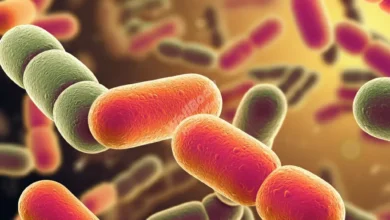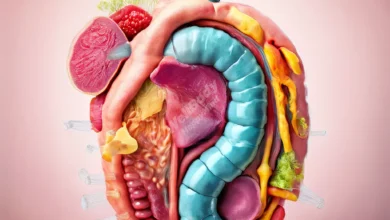Your Body’s Ecosphere: Understanding the Gut-Health Connection
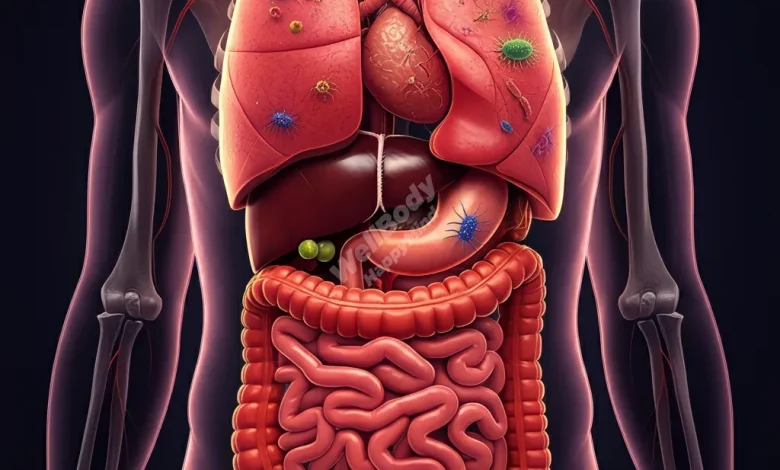
Your Body’s Ecosphere: Understanding the Gut-Health Connection
Did you know that your gut is home to trillions of tiny organisms? This bustling community inside you plays a crucial role in your overall health. Welcome to the fascinating world of the gut microbiome!
Imagine your gut as a thriving city. It’s filled with different “neighborhoods” of bacteria, viruses, and fungi. These tiny residents work together to keep you healthy. They affect everything from your mood to your immune system.
In this blog post, we’ll explore the amazing gut-health connection. You’ll learn how your gut influences your body and mind. We’ll also discover ways to keep your inner ecosystem happy and balanced.
Get ready to embark on a journey through your body’s incredible internal world. By the end, you’ll have a new appreciation for the power of your gut!
What is the Gut Microbiome?
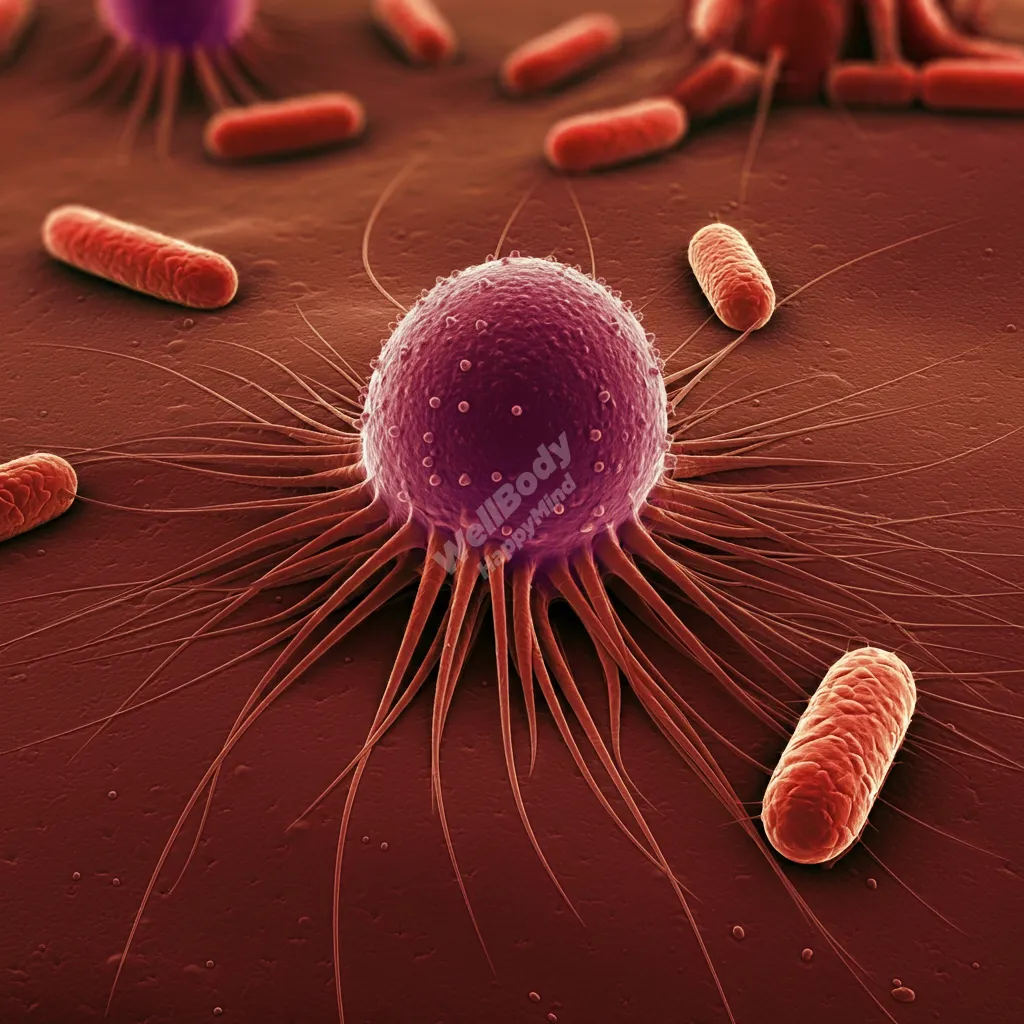
The gut microbiome is like a bustling community living in your digestive system. It’s made up of billions of tiny organisms, mostly bacteria. These little helpers play a big role in keeping you healthy.
Here’s a quick look at what’s in your gut:
- Bacteria (the most common)
- Viruses
- Fungi
- Other microorganisms
These tiny residents aren’t just passive tenants. They’re hard at work! Your gut microbiome helps with many important jobs:
- It helps break down food you can’t digest on your own.
- It makes some vitamins your body needs.
- It trains your immune system to fight off bad germs.
- It even affects your mood and mental health!
Think of your gut microbiome as a garden. Just like plants in a garden, the microbes in your gut need care to thrive. When they’re healthy, they help keep your whole body in balance.
Understanding your gut microbiome is key to digestive wellness. It’s not just about avoiding stomach aches. A healthy gut can impact your entire body’s well-being.
In the next section, we’ll explore how your gut talks to your brain. It’s a two-way conversation that affects both your physical and mental health!
The Gut-Brain Axis: A Two-Way Street
Have you ever had a “gut feeling” about something? There’s science behind that saying! Your gut and brain are in constant communication through what scientists call the gut-brain axis.
This connection is like a busy highway, with information traveling in both directions. Here’s how it works:
- Your gut sends signals to your brain.
- Your brain responds and sends messages back to your gut.
- This back-and-forth affects both your physical and mental well-being.
Imagine your gut as a second brain. It has its own nervous system called the enteric nervous system. This “gut brain” can work on its own and also connects to your main brain.
The gut-brain connection can affect your mood and mental health. Research shows links between gut health and:
- Anxiety
- Depression
- Stress levels
- Even some brain disorders
For example, have you ever felt butterflies in your stomach when you’re nervous? That’s your gut-brain axis at work!
Your gut microbes play a big role in this communication. They produce chemicals that can influence your brain function. Some of these chemicals are the same ones that regulate your mood.
Understanding this connection is crucial for overall health. It’s not just about digestive wellness. Taking care of your gut could also mean taking care of your mind!
In the next section, we’ll explore how your gut influences your immune system. Get ready to discover the surprising ways your gut helps keep you healthy!
Gut Health and Immune Function
Did you know that about 70-80% of your immune cells are located in your gut? That’s right! Your gut is like a training ground for your body’s defense system.
Your gut microbiome plays a crucial role in shaping your immune response. Here’s how:
- Education: Gut bacteria help train your immune cells to recognize friend from foe.
- Protection: They form a barrier against harmful invaders.
- Communication: They send signals that help regulate immune responses.
Think of your gut bacteria as tiny teachers for your immune system. They help it learn what’s normal and what’s a threat. This training is crucial for a well-functioning immune system.
When your gut is healthy, it supports a strong immune system. But what happens when things are out of balance?
An imbalanced gut microbiome can lead to:
- Increased inflammation
- Higher risk of infections
- Potential development of autoimmune conditions
Maintaining a healthy gut isn’t just about digestive wellness. It’s a key part of keeping your entire body protected and functioning well.
Digestive Health and Beyond
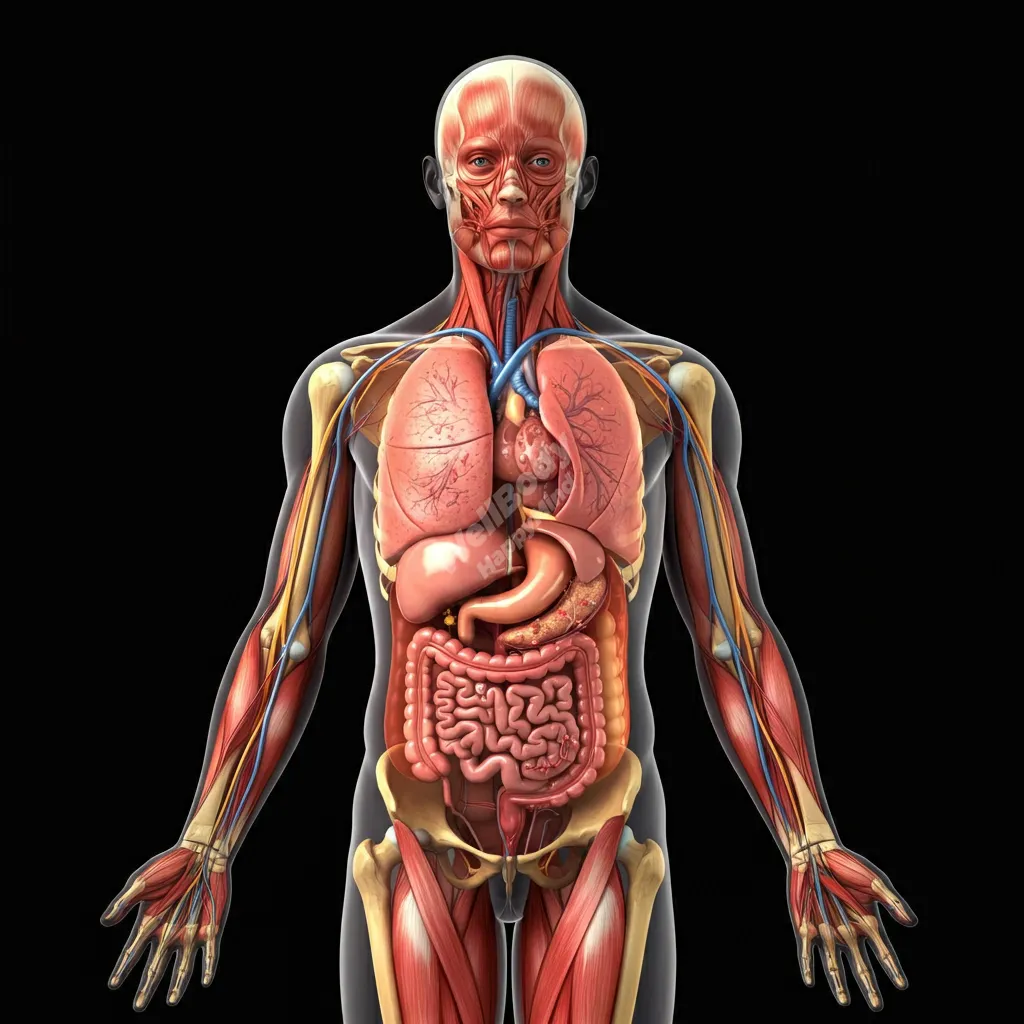
While we often think of the gut in terms of digestion, its influence extends far beyond that. Let’s explore how a healthy gut contributes to your overall well-being:
- Nutrient Absorption: A healthy gut helps your body absorb vitamins and minerals more effectively.
- Digestive Comfort: Good gut health can reduce issues like bloating, gas, and constipation.
- Skin Health: Surprisingly, your gut health can affect your skin! Many skin conditions are linked to gut imbalances.
- Heart Health: Some gut bacteria produce compounds that may help protect your heart.
Here’s a quick look at how gut health connects to common digestive issues:
| Digestive Issue | Potential Gut Health Connection |
|---|---|
| Irritable Bowel Syndrome (IBS) | Often linked to gut microbiome imbalances |
| Inflammatory Bowel Disease (IBD) | Associated with changes in gut bacteria |
| Acid Reflux | May be influenced by certain gut bacteria |
Remember, a happy gut often means a happier, healthier you!
In the next section, we’ll explore the factors that can affect your gut health and what you can do to nurture your internal ecosystem.
Factors Affecting Gut Health
Your gut microbiome is like a delicate garden. Many factors can influence its balance and health. Let’s explore the key elements that impact your gut:
Diet: What you eat plays a huge role in shaping your gut health.
- Beneficial foods for gut health include:
- Fiber-rich fruits and vegetables
- Fermented foods like yogurt and kimchi
- Whole grains
- Lean proteins
Stress: High stress levels can negatively affect your gut bacteria.
- Chronic stress may lead to gut inflammation and imbalance.
Medications: Some medicines, especially antibiotics, can disrupt your gut microbiome.
- While antibiotics are sometimes necessary, they can kill both good and bad bacteria.
Lifestyle Factors:
- Sleep: Poor sleep can affect gut health and vice versa.
- Exercise: Regular physical activity supports a healthy gut.
Environmental Influences:
- Exposure to toxins or pollutants can impact your gut bacteria.
- Even factors like where you live can affect your microbiome.
Understanding these factors is crucial for maintaining digestive wellness and overall health.
Signs of an Unhealthy Gut
How do you know if your gut needs some TLC? Here are some common signs that your gut might be out of balance:
- [ ] Frequent upset stomach (gas, bloating, diarrhea, constipation)
- [ ] Unintentional weight changes
- [ ] Sleep disturbances or constant fatigue
- [ ] Skin irritation
- [ ] Autoimmune conditions
- [ ] Food intolerances
If you’re experiencing several of these symptoms regularly, it might be time to pay more attention to your gut health. Consider consulting a healthcare professional for personalized advice.
Nurturing Your Gut Ecosystem

Now that we understand the importance of gut health, let’s explore ways to nurture your internal ecosystem:
- Eat a Diverse Diet: Include a wide variety of fruits, vegetables, and whole grains.
- Embrace Fermented Foods: Yogurt, kefir, sauerkraut, and kimchi are rich in probiotics.
- Consider Probiotics and Prebiotics:
- Probiotics are beneficial bacteria found in supplements and fermented foods.
- Prebiotics are fibers that feed your good gut bacteria.
- Manage Stress: Try meditation, yoga, or deep breathing exercises.
- Stay Hydrated: Drinking enough water benefits your gut lining and the balance of good bacteria.
- Limit Processed Foods and Added Sugars: These can negatively impact your gut bacteria.
- Exercise Regularly: Physical activity promotes a healthy gut microbiome.
Remember, small changes can make a big difference in your gut-health connection!
The Future of Gut Health Research

The field of gut health research is rapidly evolving, with exciting developments on the horizon. Here’s a glimpse into what the future might hold:
- Personalized Nutrition: Scientists are working on ways to tailor diets based on individual gut microbiome profiles. Imagine a world where your meal plan is perfectly matched to your unique internal ecosystem!
- Microbiome-Based Therapies: Researchers are exploring how manipulating gut bacteria could treat various diseases. This could lead to new treatments for conditions ranging from obesity to mental health disorders.
- Gut-Brain Axis Interventions: As we learn more about the gut-health connection, we may see new therapies targeting the gut to improve brain health.
- Advanced Probiotics: Future probiotics might be more targeted and effective, designed to address specific health issues.
- Early Life Interventions: Understanding how the gut microbiome develops in infancy could lead to strategies for preventing health issues later in life.
These advancements hold the promise of more effective, personalized approaches to health and wellness. The future of gut health is an exciting frontier in medical research!
Conclusion: Embracing Your Body’s Ecosphere

We’ve journeyed through the fascinating world of your gut microbiome and its profound impact on your overall health. Let’s recap the key points:
- Your gut is home to trillions of microorganisms that play crucial roles in your health.
- The gut-health connection influences everything from your immune system to your mood.
- Diet, lifestyle, and environmental factors all affect your gut microbiome.
- Nurturing your gut health can lead to improvements in digestive wellness and overall well-being.
As we’ve discovered, your gut is much more than just a digestive organ. It’s a complex ecosystem that’s intimately connected to your entire body and mind.
By taking care of your gut, you’re investing in your overall health. Remember, small changes can make a big difference. Whether it’s adding more fiber to your diet, managing stress, or considering probiotic foods, every step counts.
We encourage you to listen to your gut – literally and figuratively! Pay attention to how different foods and lifestyle choices make you feel. Your body often knows what it needs.
As research continues to uncover the mysteries of the gut microbiome, we’re likely to gain even more insights into how we can optimize our health through gut care.
So, are you ready to give your internal ecosystem the attention it deserves? Your happier, healthier self might just be a few gut-friendly choices away!
Take the first step today. Your gut will thank you, and you might be surprised at how much better you feel overall. Here’s to your health, from the inside out!

